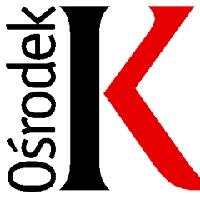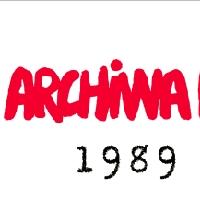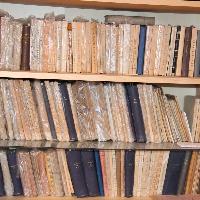The Archive of Opposition is one of the oldest activities of the KARTA Centre. It was established in 1991 as “The Archive of the Polish People’s Republic” and gathered all the materials concerning political life in Poland since 1956 to 1989, especially in connection to the events of 1956, 1968, 1970, 1980. In 1998 the archive changed its name to “The Archive of Opposition”, which reflects greater awareness of the specificity of the opposition in the Polish People’s Republic: its diversity extending beyond merely political actions. In the Archive researchers and journalists can find a very rich, written and visual material on the newest Polish political and social history.
-
Vieta:
-
Warszawa, Ul. Narbutta 29
-
Temos:
-
Įkūrimo data:
-
Charakteringi eksponatai:
The Archives of Transition 1989-1991 is a project coordinated by the Chancellery of the President of the Republic of Poland and the Chancellery of the Senate of the Republic of Poland. The project aims at creating a public registry of all materials, archives, library, cultural institutions and museums in possession of materials concerning the period of Polish political and social transformation. Archives of Transition consists of mapping the potential partners, researching the content of their collection and putting them in digital registry. The core of the collection of the Archives of Transition are the documents from both Chancelleries obtained from former politicians and activists, representing changes in Polish political, cultural and social context.
-
Vieta:
-
Temos:
-
Įkūrimo data:
-
Charakteringi eksponatai:
As the largest national public collection, the Contemporary Collection of the Hungarian National Gallery contains a significant number of Hungarian artworks made between 1945 and today. The acquisition of the collection can be divided into different phases: in certain periods the goal of what type of works to collect shifted in accordance with the actual cultural politics. Since the eighties, they extended the collection backward in time as well, so today they own thousands of pieces which were previously a blind spot due to political reasons, but relevant in terms of cultural opposition. The procurement process is still ongoing.
-
Vieta:
-
Budapest Szent György tér 2, Hungary 1014
-
Temos:
-
Įkūrimo data:
-
Charakteringi eksponatai:
The Soft Geometry Archive was built up by Géza Perneczky in Cologne, Germany. The archive consists primarily of publications by artists since the 1970s and works from the art movements of late Fluxus, Mail Art, and visual and experimental poetry. The collection includes works by artists from all over the world, for instance Latin America and Japan. Works by East-European artists constitute about 25 percent of the content.
-
Vieta:
-
Bremen Teerhof 20, Germany 28199
-
Temos:
-
Įkūrimo data:
-
Charakteringi eksponatai:
This collection is a valuable source of knowledge about a religious and philosophical doctrine of great cultural influence. The Christian Esoteric School of the so-called Universal White Brotherhood, created by Petar Danov / Beinsa Douno in 1922, was registered as a religious community after the establishment of Communist rule in 1948. In practice, however, the Brotherhood, referred to by the socialist state as “the Danovists’ Sect", led a semi-legal existence: their properties were seized and so-called "reactionary literature by author P. Danov" was confiscated, members of the Brotherhood and supporters were subjected to persecution, sentenced in prison and forced labour camps. State Security agents also infiltrated the spiritual community and a number of publications were published to rebut the "antiscientific and reactionary nature of Danovism". Despite these harsh conditions, followers of Petar Danov / Beinsa Douno managed to preserve their movement. This collection, which covers a wide period from the end of the 19th century through the present day, documents the activities of Petar Danov and his followers. Additionally, the collection demonstrates the increased interest and importance of the spiritual movement after the political events of 1989.
-
Vieta:
-
Temos:
-
Įkūrimo data:
-
Charakteringi eksponatai:





